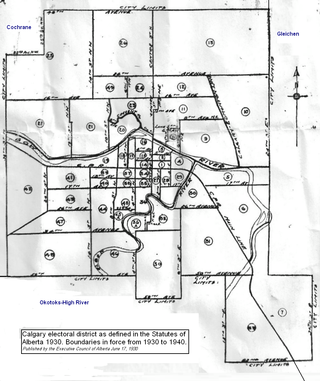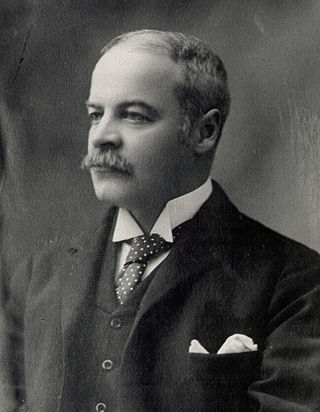Related Research Articles
A member of parliament (MP) is the representative in parliament of the people who live in their electoral district. Members of parliament typically form parliamentary groups, sometimes called caucuses, with members of the same political party. Many countries with bicameral parliaments, this term refers only to members of the lower house since upper house members often have a different title. The terms congressman/congresswoman or deputy are equivalent terms used in other jurisdictions. The term parliamentarian is also sometimes used for members of parliament, but this may also be used to refer to unelected government officials with specific roles in a parliament and other expert advisers on parliamentary procedure such as the Senate parliamentarian in the United States. The term is aMembers of parliament typically form parliamentary groups, sometimes called caucuses, with members of the same political party.lso used to the characteristic of performing the duties of a member of a legislature, for example: "The two party leaders often disagreed on issues, but both were excellent parliamentarians and cooperated to get many good things done."

King of the Romans was the title used by the king of East Francia following his election by the princes from the reign of Henry II (1002–1024) onward.
Nonpartisan democracy is a system of representative government or organization such that universal and periodic elections take place without reference to political parties. Sometimes electioneering and even speaking about candidates may be discouraged, so as not to prejudice others' decisions or create a contentious atmosphere.
The 1935 Quebec general election was held on November 25, 1935, to elect members of the Legislative Assembly of the Province of Quebec, Canada. The incumbent Quebec Liberal Party led by Louis-Alexandre Taschereau was re-elected, defeating the Action libérale nationale, led by Paul Gouin, and the Quebec Conservative Party, led by Maurice Duplessis.

Medicine Hat was a provincial electoral district in Alberta, Canada, mandated to return members to the Legislative Assembly of Alberta from 1905 to 1971, and again from 1979 to 2019. The electoral district was named after the City of Medicine Hat.

The 1914 Ontario general election was the 14th general election held in the Province of Ontario, Canada. It was held on June 29, 1914, to elect the 111 Members of the 14th Legislative Assembly of Ontario (MLAs).

Calgary was a provincial electoral district in Alberta, Canada, mandated to return one to six members to the Legislative Assembly of Alberta from 1905 to 1913, and again from 1921 to 1959. The district largely encompassed the boundaries of the City of Calgary, and was revised accordingly as the city grew.
Victoria was one of the original 25 provincial electoral districts in Alberta, named for Fort Victoria on the North Saskatchewan River. It was mandated to return a single member to the Legislative Assembly of Alberta by the first past the post method until 1917, and by instant-runoff voting from 1926 until it was abolished in 1940.
Athabasca was a provincial electoral district in Alberta, Canada, mandated to return a single member to the Legislative Assembly of Alberta from 1905 to 1986.
The 1888 North-West Territories general election elected members of the 2nd Legislative Council of the North-West Territories. The 2nd Legislative Council of the North-West Territories replaced the 1st Council of the North-West Territories. The 2nd Legislative Council of the North-West Territories was replaced by the 1st North-West Assembly in 1891 when the quota of elected members was reached.

The 1904 Prince Edward Island general election was held in the Canadian province of Prince Edward Island on December 7, 1904.
Acclamation was formerly one of the methods of papal election.
James L. Antoine is a former politician from the Northwest Territories, Canada. He served as a member of the Legislative Assembly of the Northwest Territories from 1991 to 2003. During his time in office he led the Northwest Territories government as the eighth premier of the Northwest Territories from 1998 to 2000. He has also served as Chief of the Liidlii Kue First Nation on four occasions from the 1970s to present.

The 2007 Northwest Territories general election took place on October 1, 2007. Nineteen members were elected to the Legislative Assembly from single member districts conducted under first-past-the-post voting system.

The 1892 Edmonton municipal election, held February 10, 1892, was the first after the incorporation of Edmonton as a town in the North-West Territories on January 9, 1892, and was held to elect the new town's first town council for a one-year term. Matthew McCauley was acclaimed as Edmonton's first mayor, Voters elected six aldermen -Colin Strang, Daniel Fraser, Edward Carey, James Goodridge, John Cameron, and Philip Daly - from a field of fourteen candidates.

Floyd K. Roland is a politician from Northwest Territories, Canada. He was the 11th premier of the Northwest Territories, having held office from October 17, 2007 to October 26, 2011.
John Pollard is a businessman and former politician from Hay River, Northwest Territories, Canada. He was a Member of the Legislative Assembly of the Northwest Territories from 1987 until 1995, serving as Minister of Finance.

John Lineham was a territorial-level politician and businessman from Northwest Territories, Canada.

The 1884 Calgary municipal election was held on December 3, 1884 to elect a Mayor and four Councillors to sit on the first Calgary Town Council from December 4, 1884 to January 18, 1886.
The 2022 municipal elections in Ontario were held on October 24, 2022.
References
- ↑ Robert, Henry M. (2011). Robert's Rules of Order Newly Revised, 11th ed., p. 443 (RONR)
- ↑ "Elected by acclamation". Electoral Results. Parliament of Canada. Archived from the original on 22 June 2008. Retrieved 2008-06-24.
- ↑ Results of the 2003 Northwest Territories election Archived 2011-07-06 at the Wayback Machine - Elections NWT. Retrieved 2010-01-11.